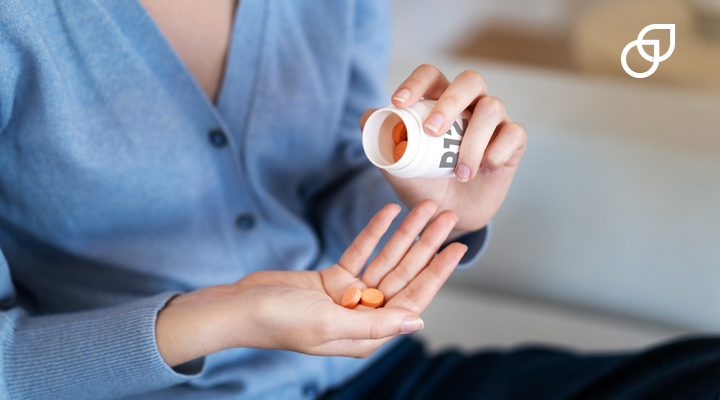Vitamin B12, an essential nutrient for nerve tissue health, red blood cell production, and DNA synthesis, has often raised questions about its supplementation – Specifically, can you overdose on B12?
Given its important role in the body and the popular trend of supplementing with B12, especially among those with dietary restrictions, it’s very important to be aware of its recommended dosage and when it can potentially lead to an overdose.
What is Vitamin B12?
Vitamin B12 a.k.a cobalamin, is a vital water-soluble nutrient central to numerous bodily processes, notably in nerve health and the production of red blood cells. It is essential for DNA synthesis, nerve functionality, and the breakdown of proteins as well as fats.
Vitamin B12 is primarily found in animal-based foods such as meat, fish, eggs, and dairy products, with smaller amounts present in some fortified plant-based foods. Absorption of B12 requires adequate stomach acid and intrinsic factor, a protein produced in the stomach.
Vitamin B12 Deficiency Symptoms
Vitamin B12 is quite essential for the body, and its deficiency can lead to various health issues.
Here are the symptoms that indicate vitamin B12 deficiency:
- Fatigue
- Weakness
- Constipation
- Loss of appetite
- Weight loss
- Numbness and tingling in hands and feet
- Difficulty maintaining balance
- Depression
- Confusion
- Poor memory
Can You Overdose on B12?
While Vitamin B12 is generally safe, with no established Tolerable Upper Intake Level due to its low toxicity and the body’s ability to excrete the excess amounts, high doses of supplementation have been associated with negative effects. These adverse effects include acne outbreaks and potential health risks for individuals with existing conditions like diabetes or kidney diseases.
Studies suggest that excessively high B12 levels, particularly from supplements, may lead to adverse health outcomes, such as accelerated decline in kidney function and increased risk of heart attack, stroke, and autism spectrum disorder in unborn children. However, daily oral supplements up to 2 mg are considered safe and effective for treating B12 deficiency, with the recommended daily intake being 2.4 mcg for adults.
How Much Vitamin B12 One Should Take?
For most healthy individuals, a balanced diet including foods like eggs, meat, seafood, and fortified products should provide sufficient Vitamin B12. However, certain groups such as those on medications affecting B12 absorption, pregnant or breastfeeding women, vegans, and older adults may need supplements.
While megadoses of up to 2,000 mcg are considered safe for treating deficiency, excessive B12 intake is generally unnecessary and should be avoided without medical supervision. It is advised to consult a doctor if deficiency is suspected, as B12 absorption varies based on individual needs. Therefore, taking high doses without need may not offer benefits, instead it could potentially be harmful.
Conclusion
For anyone who is suffering from Vitamin B12 deficiency, Manhattan IV Therapy in NYC offers expert care under the guidance of Dr. Syra Hanif.
Schedule your appointment today to replenish your B12 levels to the required amount!

